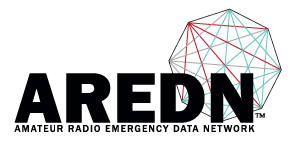You are here
AREDN Announces Upcoming Features and Devices
Announcing the Availability of Release Candidate #1 of Our Upcoming v3.17.1.0
AREDN encourages users to load (http://www.arednmesh.org/content/software click Release Candidates) and test version 3.17.1.0RC1 and report any issues to the Forum.
Release Notes 3.17.1.RC1
These notes accompany our 3.17.1.0 Release Candidate-1 and describe changes since our last major production release, v3.16.1.0.
New Device Support
Added support for additional Ubiquiti devices which are now flagged as “In testing”:
- AirGrid M5 (XW)
- NanoBeam M5-16 (XW)
- NanoBeam M5-19 (XW)
- NanoStation Loco M5 (XW)
- NanoStation M5 (XW) (in 3.16.1.0)
- Rocket M5 (XW)
- Rocket M5 (with GPS)
- PowerBeam M2-400
- PowerBeam M5-300
- PowerBeam M5-400
-
Added support for newer TP-Link device revisions:
-
CPE210 v1.1
-
Security Fixes
- SCS-2017-001 – High Severity
- A remote Denial of Service flaw impacting ALL RELEASES of the AREDN/BBHN branded firmware since at least version 0.4.3. Immediate upgrade to 3.16.1.1 (or newer) is recommended to ensure stability of the mesh nodes.
- SCS-2016-005 – Low Severity
- A number of low severity flaw in dropbear (the ssh server) were reported to AREDN. While these flaws were in 3.16.1.0 they could not be exploited in a default installation as the features were not utilized (CVE-2016-7406, CVE-2016-7407, CVE-2016-7408, CVE-2016-7409)
- Instruct search engines not to index node pages
- Improved HTTP server password security
Upgradability
- Improved low memory issues that occasionally prevented sysupgrades
- Tunnel server and client connections must be disabled prior to performing a sysupgrade
- Timezone setting now persists across a sysupgrade
Node/Network Manageability
- Removed non-“MESH” modes from setup page (ie. Mesh Access Point, Standard Access Point, Wireless Client, Wired Router)
- Added MCS and TX/RX Rate info into SNR archive charts
- Changed look of SNR charts to be more representative of the RF “envelope” (between signal and noise)
- SNR charts are now time-linear and fill more screen space
- Wifi scan page is now password protected to limit RF service interruptions
- Updated the Help page
- Fixed sysinfo.json errors when tunnels were installed
- Allow supporttool to be run from shell (ie. /www/cgi-bin/supporttool )
- The AREDN logo is now a clickable link to http://localnode.local.mesh
- On Basic Setup page, WAN protocol no longer gets stuck in DHCP mode
- Added “services” to sysinfo.json api (/sysinfo.json?services=1)
- “Push to AREDN Servers” now sends link information (supports adding node-to-node links to maps)
- Field lengths on tunnel server/client pages increased
- Disabled tunnel server compression
Running other programs on a node
It has become popular to run an assortment of other programs on a node. With no need to stand-up an outboard computer, this is a tempting proposition. However, we are seeing nodes run out of memory (most Ubiquiti devices have 32MB RAM, the Rocket, for example, have 64MB), particularly by a combination of tunnel services and MeshChat (the full package). When this occurs, the node will automatically kill one or more processes. Depending on what it elects to kill, the device may run erratically or reboot. The AREDN team encourages the use of RPi or other outboard computer for MeshChat and leverage the MeshChat API-only package for the node.
OpenWRT Upgrade
Updated OpenWRT to Chaos Calmer (v15.05)
This included several important changes. To highlight a few:
- Linux kernel updated to 3.18.20
- Improved security features and fixes
- Support for more ar71xx-based devices
- Short-guard intervals increases max MCS15 RF encoding speed from 130 to 144.4 Mbps in a 20 MHz channel
Theme by Danetsoft and Danang Probo Sayekti inspired by Maksimer
